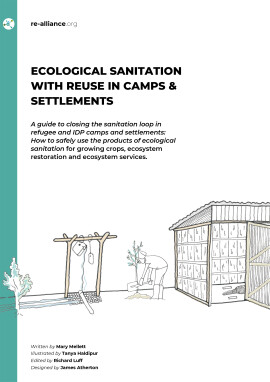
Gender and Water Sanitation and Hygiene
At birth and death, and each day in between, individual human need for water, sanitation and hygiene (WASH) is near constant. While WASH is intensely personal, it is also about power, inequality, development and social justice. Inadequate WASH provision both results from and causes continuing poverty, and serves to reinforce gender and other inequalities. Women and girls experience WASH needs differently from men, both as individuals, and as societies’ carers. Gender and Water, Sanitation and Hygiene highlights the importance of WASH provision for women and girls in their own right, as carers for families and communities, and as key to women’s empowerment.
Series: Working in Gender & Development
Published: 2019
Pages: 188
eBook: 9781788530866
Paperback: 9781788530835
Hardback: 9781788530842
| Introduction to gender, and water, sanitation and hygiene | |||
|---|---|---|---|
| No relief: lived experiences of inadequate sanitation access of poor urban women in India | |||
| Mainstreaming gender in the WASH sector: dilution or distillation? | |||
| Mainstreaming gender in WASH: lessons learned from Oxfam’s experience of Ebola | |||
| Women’s environmental health activism around waste and plastic pollution in the coastal wetlands of Yucatán | |||
| Reframing women’s empowerment in water security programmes in Western Nepal | |||
| In troubled waters: water commodification, law, gender, and poverty in Bangalore | |||
| Domesticating water supplies through rainwater harvesting in Mumbai | |||
| Transforming gender relations through water, sanitation, and hygiene programming and monitoring in Vietnam | |||
| ‘Breaking the silence around menstruation’: experiences of adolescent girls in an urban setting in India | |||
| Resources |
Caroline Sweetman was previously Editor of the international journal Gender & Development.





